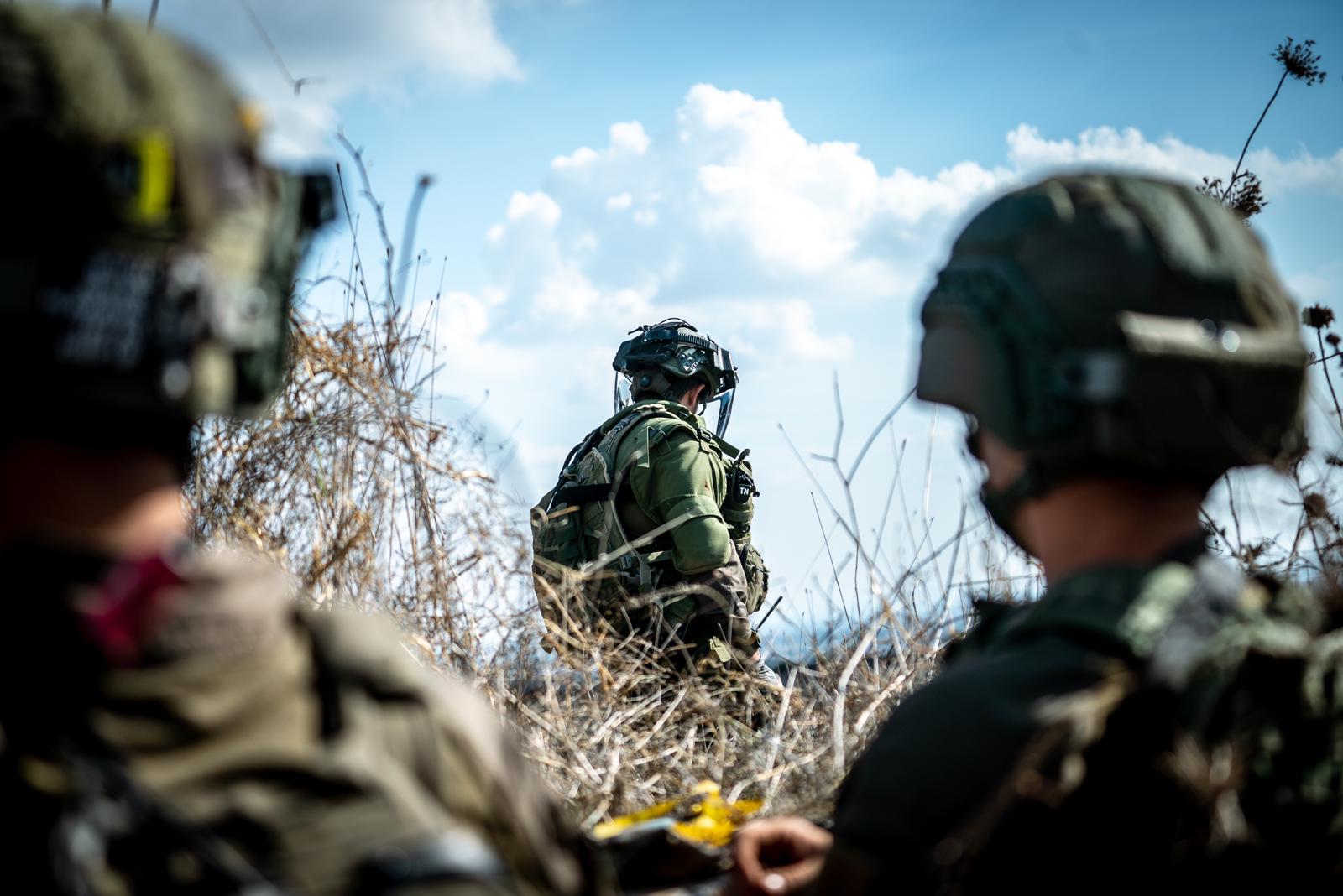What the CIA Could Learn From the U.K. Government Apology Over a Libyan Rendition Case
Abdul-Hakim Belhaj and Fatima Boudchar were my clients. Belhaj led a Libyan Islamist group that sought to overthrow Moammar Gadhafi; Boudchar, a Moroccan citizen, is his wife. The CIA abducted them in 2004 with the help of Libya and the United Kingdom. CIA officers roughed them up at a “black site” in Thailand—a year and a half after Gina Haspel, recently confirmed as director of the CIA, had reportedly shut down the Thai site code-named “Cat’s Eye”—and shipped the couple to Gadhafi’s Libya. At the time, Boudchar was heavily pregnant.
Abdul-Hakim Belhaj and Fatima Boudchar were my clients. Belhaj led a Libyan Islamist group that sought to overthrow Moammar Gadhafi; Boudchar, a Moroccan citizen, is his wife. The CIA abducted them in 2004 with the help of Libya and the United Kingdom. CIA officers roughed them up at a “black site” in Thailand—a year and a half after Gina Haspel, recently confirmed as director of the CIA, had reportedly shut down the Thai site code-named “Cat’s Eye”—and shipped the couple to Gadhafi’s Libya. At the time, Boudchar was heavily pregnant.
Not every CIA officer will have heard of this case, brought in U.K. courts as Belhaj v. Straw. But every officer in MI6, one of the CIA’s closest partners, certainly has. MI6’s second in command at the time came within a whisker of being prosecuted for his role in the operation. The case caused a rift between Britain’s foreign intelligence service and its domestic intelligence agency. Internal documents that were later published show that MI5 frankly assessed that the operation was self-defeating: It turned a national revolutionary movement against the West. And after years of litigation Prime Minister Theresa May apologized to the couple last month.
As time passes and the CIA reflects on the early operations, and outright mistakes, of the “war on terror,” will the agency make a clean break with the past—or maintain its silence? This couple’s experience offers important lessons for the agency’s next generation.
A Historic Apology
A week before Haspel’s confirmation hearing last month, Britain’s attorney general, Jeremy Wright, stood up in the House of Commons. Fatima Boudchar was in the public gallery. Beside her was her son, Abdurrahim, the child she was carrying when she was “rendered” to Libya in 2004. Her husband watched the proceedings by livestream from the British consulate in Istanbul.
The U.K.’s senior law officer read an astonishing apology from the prime minister, saying in part:
Your accounts were moving and what happened to you is deeply troubling.
It is clear that you were both subjected to appalling treatment and that you suffered greatly, not least the affront to the dignity of Mrs Boudchar, who was pregnant at the time.
The UK government believes your accounts. Neither of you should have been treated this way.
The UK government's actions contributed to your detention, rendition and suffering.
The UK government shared information about you with its international partners.
We should have done more to reduce the risk that you would be mistreated. We accept this was a failing on our part. ...
On behalf of Her Majesty's government, I apologise unreservedly. We are profoundly sorry for the ordeal that you both suffered and our role in it.
This is the most comprehensive apology to date in the war on terror. It made only the slimmest concessions to diplomacy: for “appalling treatment” read “torture,” and for “international partners” read “CIA.” And the apology came from the chief U.S. partner in the “Five Eyes” intelligence alliance.
Public officials are generally loath to admit error. If apologies are offered, they tend to come after the protagonists are long gone. Not this time, though getting to this point was a protracted and painful process for the U.K.
Perhaps counterintuitively, the apology did Britain’s reputation a lot of good domestically and in the Arabic world. By admitting a mistake, the U.K. government improved its public standing. Belhaj’s response was magnanimous: “Britain has made a wrong right today, and set an example for other nations to follow.”
What should intelligence officers take away from this couple’s ordeal?
Lesson No. 1: It won’t stay secret forever.
The world learned about this operation because of the NATO-backed Libyan revolution. Belhaj, a dissident, led the battle for Tripoli, working closely with NATO. In September 2011, after the city fell, resistance fighters and Human Rights Watch found a cache of intelligence files in the abandoned offices of Moussa Koussa, Gadhafi’s former external spy chief. The archive offered a detailed picture of relations between the CIA, MI6 and Gadhafi’s spy services.
It is no longer safe to assume that what happens in a far-flung dungeon will stay there. Someone will leak, a regime will fall and a record will survive. Secrecy is temporary. The footprints of CIA activity are more durable and more easily found than ever.
Lesson No. 2: By refusing to call torture torture, by hanging on to rendition and by partnering with agencies that torture, the CIA has isolated itself from essential allies.
“The CIA follows the law,” Haspel said during her confirmation hearing. But whose law? A gulf has opened between the CIA’s position on treatment of prisoners and the moral and legal view of every democratic ally of the United States. In the U.S., it has been common to focus on unusual techniques used by the CIA: waterboarding, rectal rehydration, forcing detainees into “coffin-like” boxes and so on.
But that misses an important point: CIA practices well short of this—including the infamous “five techniques” used by the U.K. in Northern Ireland (prolonged wall-standing, hooding, stress positions, sleep-deprivation, and deprivation of food and water) have long been deemed torture in European jurisprudence.
Form your own view after reading Fatima Boudchar’s description of what CIA officers did to her:
I have no idea how long I was in the Thai secret prison because no one would let me sleep. The cell was white and stark, with nothing in it but a camera and hooks on the wall. The masked abductors were waiting. I was terrified. They chained me to the hooks. Because I was midway through my pregnancy, I could barely move or sit.
Some of what they did to me in that prison was so awful I can’t talk about it. They hit me in the abdomen just where the baby was. To move me, they bound me to a stretcher from head to toe, like a mummy. I was sure I would shortly be killed.
For the rendition flight to Libya, I was taped to a stretcher again. The tape caught the corner of my eye. It stayed that way, my eye taped open, tears streaming down my face, for more than 14 hours.
This is by no means an exhaustive account. Some abuse was so degrading that Boudchar declines, to this day, to discuss it in public.
Theresa May was right to call this “appalling treatment.” Will CIA officers be asked to do anything like this again? During her confirmation process, Haspel said that detention and interrogation were off the table—but the CIA still views rendition as an option. In the U.K., rendition has been unlawful since at least 2000 (R v Mullen). Getting foreign partners to run secret detentions (or torture) in the CIA’s stead is as unlawful—and risky—as the CIA running prisons of its own.
Lesson No. 3: Alliances made renditions possible, but renditions will make those alliances more fraught.
In the Belhaj case, the crucial fax found in Libya showed Sir Mark Allen, second in command of MI6 at the time, taking credit for the operation: “I know I did not pay for the air cargo,” he crowed, “but the intelligence [on Belhaj] was British.” Like virtually every rendition case, foreign intelligence assistance was critical.
British and European agencies will be more leery in the future because this incident sparked a multiyear Scotland Yard investigation. Police interviewed more than 65 government witnesses and recommended that Allen be indicted. Prosecutors declined to charge him, citing insufficient evidence; a legal challenge to this decision was pending when the government apologized to Belhaj last month. While Allen escaped prosecution, the regular presence of detectives in the MI6 headquarters at Vauxhall Cross has left its mark.
Lesson No. 4: Not all courts are, or will be, as deferential to the security state as federal courts.
The U.K. Supreme Court unanimously ordered a trial of the claims, rejecting the government’s lengthy appeals. The U.K. had sought to have the case dismissed, citing arguments unfamiliar in British law that more closely resembled a U.S. Justice Department defense brief in a national security case (foreign act of state, arguments about state secrecy, and so on). All of these arguments failed. Multiple judgments from the European Court of Human Rights—two more just last week—make clear that judges across Europe, British and European alike, think that torture, and complicity in torture, is unlawful and actionable.
What are the long-term questions and consequences for the CIA in all of this? Certainly, CIA officers were under immense strain after the Sept. 11, 2001, attacks. Yes, people genuinely feared another mass-casualty attack. Yes, the CIA’s political masters asked the agency to take on burdens for which it was wholly unprepared. And yes, some congressional critics probably knew more than they now like to say. The failures of that time are not the CIA’s alone.
But the CIA’s steadfast refusal to admit what the free world agrees on—that the agency tortured prisoners and that some of the prisoners it tortured were innocent—hurts its credibility. In hindsight, it is clear how the CIA approached the Haspel confirmation process: The agency did a head count of senators and decided it did not need to engage these issues.
That worked well if one’s only metric is having a career intelligence professional (and not, say, Tom Cotton) head the agency. But the CIA works abroad. Its global image matters. And over the longer term this stance will harm the U.S. interests officers join the agency to defend.
The CIA faces two problems. One is that Haspel’s directorship in a Trump presidency raises political and legal hurdles regarding intelligence sharing for European and Five Eyes states. These issues will probably be litigated, not merely at the level of individual detentions or historic cases but on the more consequential level of sharing signals intelligence (SIGINT) too.
The second issue is recruitment. All the SIGINT in the world is not a substitute for hiring a diverse cadre of officers to run innovative operations or having human sources in terror groups. How will the CIA recruit young Muslims as officers and agents if people think the agency is prepared to stoop to tactics used by the Arab world’s worst despots? Sure, money talks—but for many, values talk louder.
It is not too late to do better. A genuine reckoning is the best way to heal the reputation—and effectiveness—of the CIA. For one thing, fewer groups will pile on an agency that is remorseful and admits to having learned lessons. Even the American Civil Liberties Union reacted to the Senate torture report by calling for pardons.
The CIA’s stance is understandable in today’s political climate. With such a volatile president, junior officers are no doubt relieved to have one of their own as boss. But one of these days, an officer will again be asked to do things that won’t look good in the cold light of day. Next time, the situation won’t involve the pregnant woman rendered to the North African dictator. It will be something else. Those rising through the CIA ranks ought to consider which side of history they want to be on and where the long-term interests of the agency truly lie.


.jpg?sfvrsn=407c2736_6)


